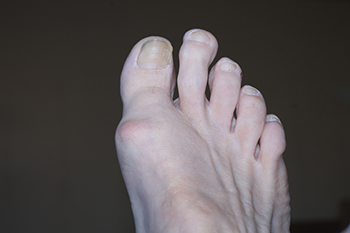
Morton’s toe, also known as Greek foot, is a condition where the second toe is longer than the big toe. While it is often a benign anatomical variation, it can lead to discomfort and pain due to altered foot mechanics. Individuals with Morton’s toe may experience metatarsalgia, which is pain in the ball of the foot, as well as calluses, bunions, and discomfort while walking or standing. Treatment typically begins with conservative measures, such as wearing supportive footwear, using orthotic inserts, and practicing foot stretches. However, if pain persists or worsens, it is important to consult a podiatrist. This type of doctor may recommend more advanced treatments, including targeted exercises or, in severe cases, surgery to alleviate pain and correct alignment issues. If you suspect you have Morton’s toe and are experiencing discomfort, it is suggested you schedule an appointment with a podiatrist for a thorough assessment and tailored treatment options.
Morton’s neuroma is a very uncomfortable condition to live with. If you think you have Morton’s neuroma, contact Mack Jay Groves IV, DPM of Practice. Our doctor will attend to all of your foot care needs and answer any of your related questions.
Morton’s Neuroma
Morton's neuroma is a painful foot condition that commonly affects the areas between the second and third or third and fourth toe, although other areas of the foot are also susceptible. Morton’s neuroma is caused by an inflamed nerve in the foot that is being squeezed and aggravated by surrounding bones.
What Increases the Chances of Having Morton’s Neuroma?
- Ill-fitting high heels or shoes that add pressure to the toe or foot
- Jogging, running or any sport that involves constant impact to the foot
- Flat feet, bunions, and any other foot deformities
Morton’s neuroma is a very treatable condition. Orthotics and shoe inserts can often be used to alleviate the pain on the forefront of the feet. In more severe cases, corticosteroids can also be prescribed. In order to figure out the best treatment for your neuroma, it’s recommended to seek the care of a podiatrist who can diagnose your condition and provide different treatment options.
If you have any questions, please feel free to contact our office located in Covington, LA . We offer the newest diagnostic and treatment technologies for all your foot care needs.
